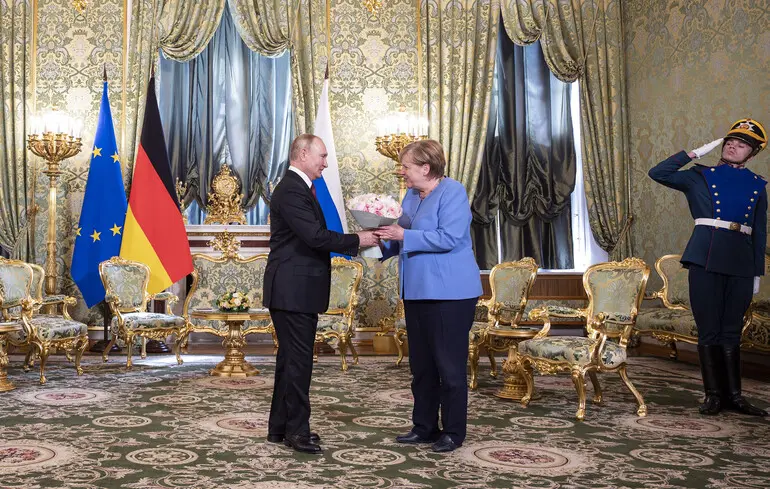Reaction of Baltic States and Poland to Merkel’s Remarks on Ukraine Invasion

Former German Chancellor Angela Merkel has become the subject of sharp criticism from Poland and the Baltic countries following her recent statements given in an interview with the Hungarian media.
During her discussion with Partizán, she suggested that Eastern European countries, including Poland and the Baltic states, bear partial responsibility for Russia’s invasion of Ukraine in 2022.
Merkel justified her position by recalling that in June 2021, she felt that Putin was no longer taking the Minsk agreements seriously, which prompted her to advocate for direct negotiations with the Russian leader—the idea of bypassing intermediaries to resolve the conflict.
She emphasized that she sought to establish a new format of talks through which the EU could directly communicate with Putin, especially amid Russia’s troop buildup near Ukraine’s borders.
However, this proposal was met with resistance from the Eastern European coalition, notably Poland, which feared that such direct talks could weaken EU unity and result in compromised policies towards Russia.
Merkel pointed out that without U.S.
support, Ukraine would struggle to maintain its independence, noting that many Eastern European countries opposed this support, fearing it might lead to division within the EU.
Critics, including Latvian former Prime Minister Krisjanis Karins, argued that during that period, many nations—including Germany and even Merkel herself—misunderstood Russia’s true intentions.
Karins warned that dealing with Putin on good faith was a flawed approach and expressed surprise that Merkel still held such views, given the current escalation in Ukraine.
Experts generally agree that Russia’s aggression stems from an unwillingness to accept the breakup of the Soviet Union and imperial ambitions, with Estonian Foreign Minister Margus Tsahkna asserting that Russia bears full responsibility for the war.
The Polish reaction was particularly harsh: former Prime Minister Mateusz Morawiecki labeled Merkel’s comments as among the most damaging political statements of the last century.
Politicians from Poland’s right-wing camp argued that her words confirmed a deep ignorance of the reality of Russia’s aggressive policies.
All parties agree that strong U.S.
support remains crucial for Ukraine’s sovereignty, and Merkel’s remarks distract from real strategic priorities.
The controversy highlights the importance of unity within the European Union in addressing key geopolitical challenges today.

